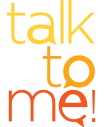‘Can’, ‘could’, and ‘be able to’ are modal verbs in English. A modal verb is a type of verb that indicates modeor manner. Modal verbs are not main verbs. They are ‘helping verbs’.
The modal verbs ‘can’, ‘could’, and ‘be able to’ show possibility and impossibility, ability, obligation, permission, requests, offers, and suggestions.
In English, modal verbs are used a lot. It is very important to understand the different ways in which we can use each modal verb.
Examples:
POSSIBILITY: They could come by train. (This means: Perhaps they will come by car, or by bus, or by plane.)
That can’t be true! (Can’t is a contraction of ‘cannot’.)
ABILITY: She can speak English really well. He can run very fast.
PERMISSION: Can we go home now? Can I turn on the fan?
REQUEST: Can you take a message, please? Could you take a message, please? (polite)
OFFER: Can I help you? Can I give you a lift home?
SUGGESTION: We could meet at the weekend. We could postpone the meeting to next month.
Exercise A: Can, Could, and Be Able To
These modal verbs are usually used to show ability.
We use can to talk about things that we are able to do in the present or the immediate future.
For example:
- I can speak three languages.
- He can help you with your chores this evening.
- They can run a marathon.
We use could to talk about what we were able to do in the past and to talk about ability in conditionals. A conditional is a sentence or part of a sentence that expresses a condition. It usually begins with the words when, if, and unless. A condition is what must happen before something else can happen.
We also use could for polite requests.
For example:
- When I was young, I could run very fast.
- Many years ago, people could travel without passports.
- Could you open the door for me, please?
- If we have enough money, we could go to the mall later.
We use be able to in formal sentences and with other modal verbs.
For example:
- She will be able to travel abroad soon.
- The doctoris able to perform operations even under difficult conditions.
- I have never been able to understand how this machine works.
Choose the correct modal verb to complete each sentence.
- I will not have much work next week. I will _______ take a day off.
- Excuse me, ____ you tell me where the hospital is?
- The scientists haven’t ___________ solve the problem yet.
- Mayank ________ play the tabla and the sitar.
- When we were younger, we _________ watch television all afternoon. Now we think it’s boring.
- ___ I help you?
- I ___ deliver the package for you.
- I ____ help you with your Hindi homework.
- We ___ go to the mall if you are interested.
- I ___ smell something burning.
- Many diseases ____ be prevented through vaccination.
- You ____ have called first to make sure I was at home.
- ____ I borrow your pencil?
- ____ I speak to Amrita?
- It ___ get very hot in the building.
- You ___ leave the class earlier if you want.
- ___ you open the window?
- I __ run for a long time.
- I ___ do the job, but I don’t want to.
- She __ sing very well, but she can’t dance.
- Anyone __ win a lottery.
- I ___ dance well when I was a child because I hurt my knee.
- Sanjay __ be injured if he is not careful.
- A chef __ cook delicious dishes.
- A fish __ fly.
